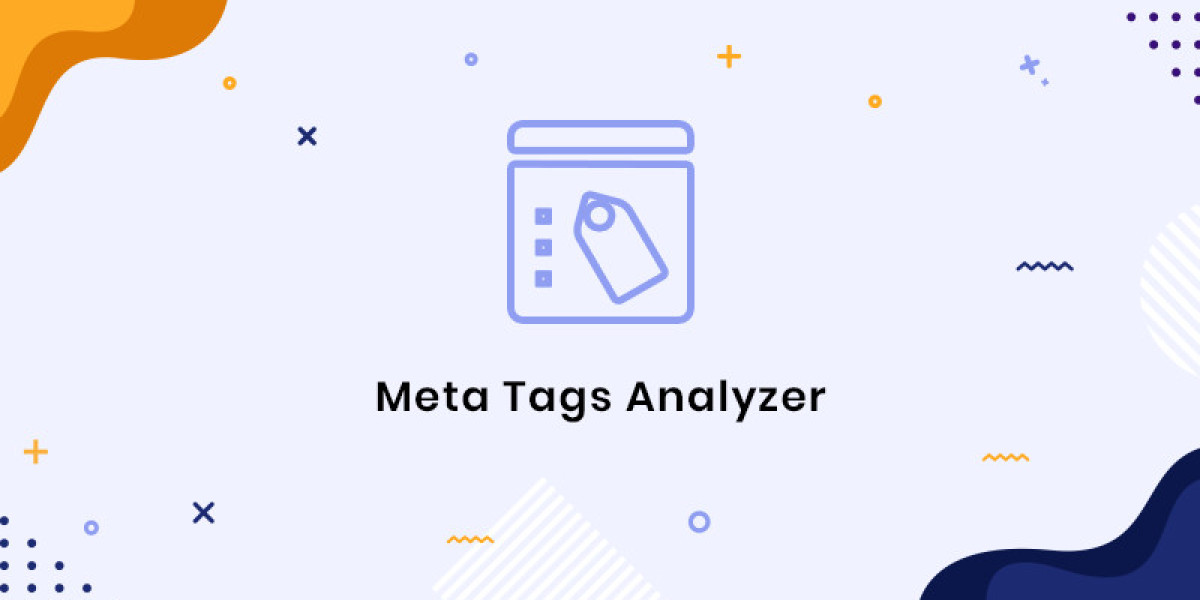What is a Meta Tags Analyzer?
A Meta Tags Analyzer is a tool that reviews the meta tags embedded within the HTML of a web page. Meta tags are snippets of text that describe a page’s content and provide metadata to search engines and web browsers. These tags do not appear on the actual page content but are crucial for SEO and how search engines interpret the content of your pages.
The primary meta tags analyzed include:
- Title Tag: Specifies the title of the web page, which appears in search engine results and browser tabs.
- Meta Description: Provides a brief summary of the page’s content, often displayed in search engine snippets beneath the title.
- Meta Keywords: Historically used to list keywords relevant to the page (though it is less relevant in modern SEO practices).
- Meta Robots: Directs search engines on how to index and follow the page.
- Meta Charset: Defines the character encoding for the page.
Why is a Meta Tags Analyzer Important?
Improves SEO: Properly optimized meta tags are crucial for search engine rankings. The title tag and meta description directly influence how search engines and users perceive your page. Analyzing these tags ensures they are optimized for relevant keywords and provide compelling descriptions.
Enhances Click-Through Rates (CTR): The meta title and description are often the first elements users see in search engine results. Well-crafted tags can attract more clicks, improving your site’s CTR.
Prevents Technical Issues: A Meta Tags Analyzer helps identify issues with your meta tags, such as missing tags, duplicate content, or incorrect configurations. Addressing these issues can improve your site's search engine performance.
Improves User Experience: Meta tags contribute to the overall user experience by ensuring that users find relevant information in search results and understand what your page is about before clicking through.
Optimizes Metadata for Social Media: Certain meta tags, such as Open Graph and Twitter Card tags, are used to control how your content appears when shared on social media. Analyzing these tags helps ensure your content is displayed attractively on social platforms.
How to Use a Meta Tags Analyzer
Using a Meta Tags Analyzer is a straightforward process. Here’s how to effectively use this tool:
Choose a Meta Tags Analyzer Tool: Several tools are available online for analyzing meta tags. Some popular options include:
- SEO Tools: Tools like SEMrush, Ahrefs, and Moz offer meta tag analysis as part of their comprehensive SEO toolkits.
- Dedicated Analyzers: Websites like Meta Tag Analyzer or Screaming Frog’s SEO Spider provide specific meta tag analysis features.
- Browser Extensions: Some browser extensions can analyze meta tags directly from your web browser.
Enter the URL: Input the URL of the page you want to analyze into the tool. Ensure you use the full URL, including the protocol (e.g.,
https://www.example.com/page).Review the Results: The analyzer will provide a detailed report on the meta tags of the page. Key elements to look for include:
- Title Tag: Length, relevance, and inclusion of target keywords.
- Meta Description: Length, clarity, and effectiveness in summarizing the page’s content.
- Meta Keywords: Presence and relevance (if used).
- Meta Robots: Proper configuration for indexing and following the page.
- Charset: Correct character encoding.
Analyze and Take Action: Use the results to make necessary adjustments. Update your meta tags to improve their effectiveness and align them with SEO best practices.
Key Features of Meta Tags Analyzers
When choosing a Meta Tags Analyzer, consider the following features to ensure it meets your needs:
Comprehensive Analysis: Look for tools that provide a detailed breakdown of all relevant meta tags, not just the title and description.
Optimization Suggestions: Some analyzers offer recommendations for improving your meta tags, such as suggested keyword usage, optimal length, and best practices.
Error Reporting: Effective tools highlight errors or issues with your meta tags, such as missing or duplicate tags, and provide actionable insights for resolution.
Integration with SEO Tools: For a more holistic approach, choose tools that integrate with other SEO functionalities, such as keyword analysis, backlink tracking, and site audits.
User-Friendly Interface: An intuitive and easy-to-navigate interface makes it simpler to analyze and understand your meta tags.
Best Practices for Optimizing Meta Tags
Craft Compelling Title Tags: Ensure your title tags are concise (50-60 characters), include relevant keywords, and accurately reflect the page’s content. Aim to create titles that are both engaging and informative to attract users.
Write Effective Meta Descriptions: Meta descriptions should be between 150-160 characters and provide a clear, compelling summary of the page’s content. Include primary keywords and a call to action to encourage clicks.
Avoid Keyword Stuffing: While including relevant keywords is important, avoid overloading meta tags with keywords. Focus on creating natural, readable text that provides value to users.
Use Unique Tags for Each Page: Ensure that each page on your site has unique meta tags to avoid duplication. Unique tags help search engines understand the distinct value of each page and improve indexing.
Optimize for Mobile Devices: Since many users access websites from mobile devices, make sure your meta tags are optimized for mobile search. This includes ensuring that title tags and descriptions are properly displayed on smaller screens.
Include Structured Data: Enhance your meta tags with structured data (schema markup) to provide search engines with additional context about your content. This can improve visibility in search results with rich snippets.
Monitor and Update Regularly: Regularly review and update your meta tags to reflect changes in content, keywords, and SEO trends. Continuous optimization helps maintain relevance and effectiveness.
Leverage Social Media Tags: Implement Open Graph and Twitter Card meta tags to control how your content appears when shared on social media platforms. Ensure these tags are optimized for visibility and engagement.
Common Issues and Troubleshooting
Missing Meta Tags: Ensure that all essential meta tags are present. Missing title or description tags can negatively impact SEO and user experience.
Duplicate Tags: Avoid having duplicate meta tags across different pages. Each page should have unique tags that reflect its specific content.
Incorrect Tag Length: Title tags that are too long may be truncated in search results, and meta descriptions that are too short may not provide enough information. Follow recommended length guidelines for optimal display.
Outdated Keywords: Regularly update meta tags to include current and relevant keywords. Outdated keywords can reduce the effectiveness of your SEO efforts.
Technical Errors: Check for technical issues such as incorrect character encoding or broken HTML that might affect the rendering of meta tags. Use validation tools to identify and fix such errors.
Conclusion
A Meta Tags Analyzer is an invaluable tool for optimizing your website’s SEO and improving user experience. By analyzing and refining your meta tags, you can enhance search engine visibility, attract more clicks, and provide a better overall experience for users. Regularly using a Meta Tags Analyzer and adhering to best practices will help you stay competitive in the ever-evolving digital landscape, ensuring that your content is effectively presented and optimized for search engines and users alike.






